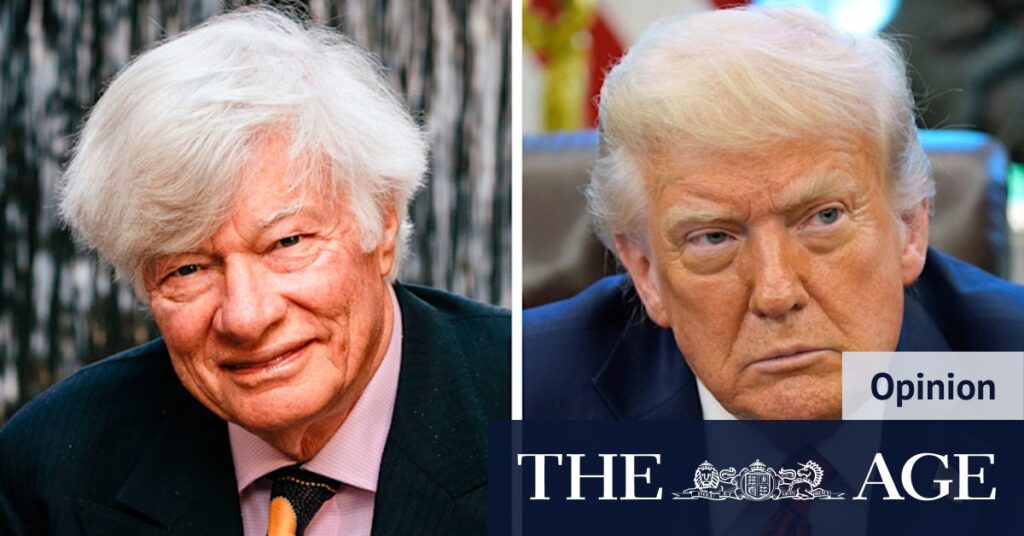
In a move that has sparked international outrage, former U.S. President Donald Trump is accused of committing a crime far graver than any other on his extensive record. This alleged crime is the “war crime of aggression,” deemed the “supreme” war crime by the Nuremberg Trials’ judgment. It involves using armed force against a fellow United Nations member in a manner so severe that it blatantly violates the UN Charter’s prohibition on one member state attacking another.
The accusation arises from the U.S. military’s recent attack on Iran’s nuclear facilities, described by some as a “spectacular military success.” However, in terms of international law, this action is likened to Russian President Vladimir Putin’s assault on Ukraine and the invasion of Iraq led by George W. Bush, Tony Blair, and John Howard. These instances represent a fundamental breach of the post-World War II global order and risk setting a dangerous precedent that could inspire similar actions elsewhere, potentially even in Taiwan.
The Context of the Alleged Crime
The attack on Iran is not merely about the immediate military action; it touches on broader geopolitical tensions and historical grievances. Iran’s government, led by the mullahs, has been accused of numerous human rights violations, including the mass execution of political prisoners in 1988 and the suppression of peaceful protests. Despite these accusations, Iran has not directly attacked Israel or the United States, raising questions about the justification for such aggressive military action.
According to international law experts, the principle of state sovereignty and the prohibition of the use of force are cornerstones of the UN Charter. Violating these principles not only undermines international law but also threatens global peace and stability. The attack on Iran, therefore, is seen as a serious breach of these principles.
Comparisons to Historical Precedents
The alleged crime of aggression by Trump draws parallels with past international conflicts. The invasion of Iraq in 2003, justified by the presence of weapons of mass destruction that were never found, remains a contentious issue in international relations. Similarly, Russia’s annexation of Crimea in 2014 and its ongoing conflict with Ukraine have been widely condemned as violations of international law.
These historical examples highlight the potential consequences of unilateral military actions without broad international support or clear legal justification. They also underscore the importance of adhering to international norms to prevent further destabilization of the global order.
Expert Opinions and Legal Implications
International law scholars and political analysts have weighed in on the implications of Trump’s alleged crime. Dr. Samantha Powers, a renowned expert in international relations, stated,
“The use of force against another sovereign state without UN Security Council authorization constitutes a grave violation of international law. It sets a dangerous precedent that could embolden other nations to act similarly.”
Legal experts argue that if the international community fails to hold accountable those who violate these norms, it risks eroding the very foundations of international law. The International Criminal Court (ICC) has the jurisdiction to prosecute individuals for war crimes, including the crime of aggression, but its ability to enforce such judgments remains limited, particularly when powerful nations are involved.
Future Implications and Global Reactions
The international reaction to the alleged crime has been mixed. Some countries have condemned the action, while others have remained silent, possibly due to geopolitical alliances or economic interests. The lack of a unified response highlights the challenges of enforcing international law in a world where power dynamics often overshadow legal principles.
Looking forward, the situation raises critical questions about the future of international relations and the role of global institutions in maintaining peace and security. Will the international community take a stand against such actions, or will it allow power politics to dictate the rules of engagement?
As the world watches closely, the consequences of this alleged crime will likely reverberate across the global stage, influencing diplomatic relations and potentially reshaping the international legal landscape.







